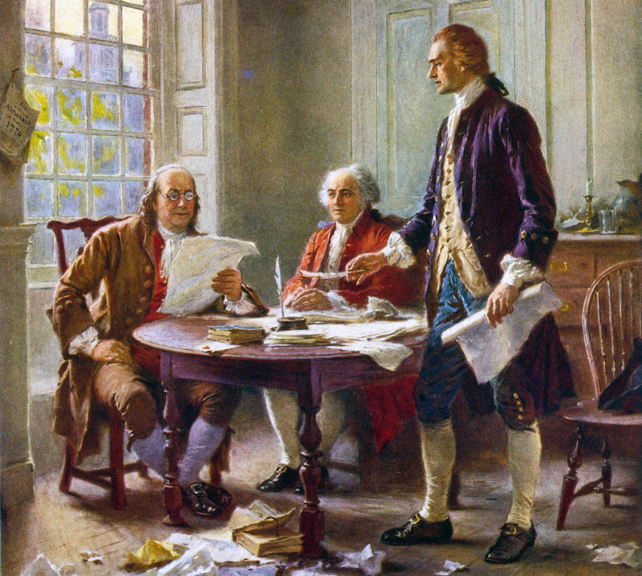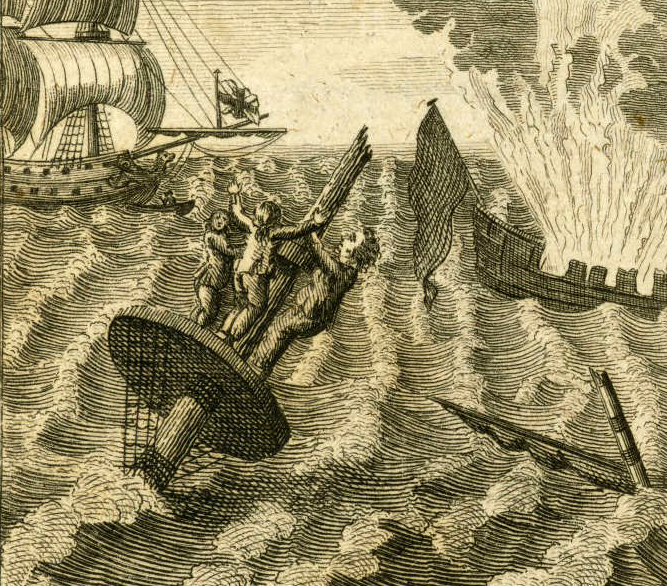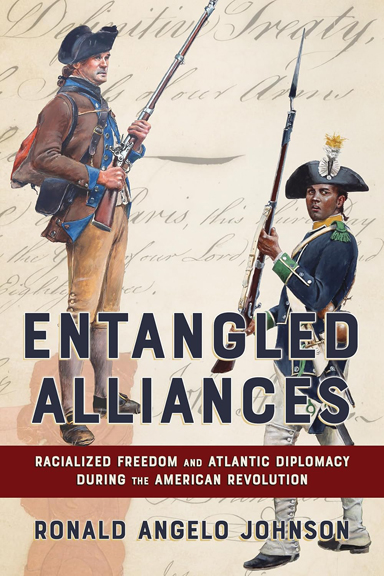How did you know today was Thanksgiving Day? Well, it is a national holiday and all, but besides that, how did you know? Odds are you just, well, knew, because everyone’s been talking about it for at least a few weeks, if for no other reason. But even months ago, if you wanted to know, you could look on any calendar, printed, on line or where ever.
How did a citizen of colonial America know it was Thanksgiving Day? There were no national holidays, because there was no nation yet. Well, that’s not really true; the colonies were part of Great Britain, so British holidays like the King’s Birthday were celebrated. But when colonial governments declared public holidays, which they were liable to do each year rather than on a permanent basis, it was announced in the way that most official policy was announced: in the newspaper. You, as an individual colonist, probably didn’t have a newspaper subscription, but instead read a copy, or heard it read, at a tavern or other public place. If you lived away from an urban center, word of mouth might’ve brought the majority of your news.
Here’s a notice that appeared in the Boston Gazette on 1 November 1756, sufficiently in advance to allow people to make plans:
Boston, November 1.
The 25th of November Instant is appointed by Authority to be observed as a Day of publick Thanksgiving throughout this Province.
25 November was a Thursday that year, as we might expect. The word “instant” in this context means “during this same month.”
The newspapers even carried occasional advertisements for merchandise related to Thanksgiving. Not the Black Friday sales, special food supplements and other commercial stuff that we’re accustomed to today, though. Here’s another Boston Gazette ad, this one from 28 March 1757 – which shows that timeliness wasn’t always foremost on the merchant’s mind:
JUST PUBLISHED,
(And Sold by the Printers hereof:)
A DISCOURSE on PSLAM cxviii. 18, 19. Deliver’d November 25, 1756. Being a Day appointed by Authority, for a publick THANKSGIVING thro’ this Province, By John Tucker, A. M. Pastor of the first Church in Newbury.
Later that year came the news that the annual Day of Thanksgiving would be a week earlier than it had been the previous year, as announced by the Boston Weekly Advertiser of 31 October 1757:
Last Thursday his Excellency the Governor, with the Advice of His Majesty’s Council, was pleas’d to issue a Proclamation, appointing Thursday the Seventeenth of November next, to be observed as a Day of Public Thanksgiving throughout this Province.
All these announcements, specific as they are to when the day was to be celebrated, gave no indication of exactly what was to be celebrated. Maybe Bostonians knew already. In neighboring Rhode Island, the governor offered a proclamation just to make things perfectly clear, as shown by the Providence Gazette of 13 November 1762:
By the Honorable
SAMUEL WARD, Esq;
Governor, Captain General, and Commander in Chief of and over the English Colony of Rhode-Island, and Providence Plantations, in New-England, in America.
A PROCLAMATION.
ALMIGHTY GOD in the Course of His wise and gracious Providence, having vouchsafed many great and signal Favours to the Kingdoms of Great-Britain and Ireland, to the British Plantations, and to this Colony in particular, the General Assembly passed an ACT, appointing THURSDAY the Eighteenth Instant, to be observed as a Day of Public Thanksgiving throughout this Government; and therein requested me to issue a Proclamation to make the same known, and to forbid all Sports and Pastimes, as well as servile Labor on that Day.
I do therefore hereby earnestly call upon and exhort all His Majesty’s good Subjects within this Colony, both Ministers and People, religiously to observe the said Day, by meeting at their usual Places of public Worship, in order to render unto Almighty GOD, their most sincere and hearty Thanks for all His Goodness and Mercies to us; and in a particular Manner for the great Successes of His Majesty’s Arms in the most important and glorious Conquests of Marinico, and the Havana, the Advantages gained over our Enemies in Germany, the Retaking of that Part of Newfoundland which the French had surprised, and the safe Delivery of our Most Gracious Queen of a Prince; which happy Event gives us the most pleasing Prospect of continuing to the Nation the Blessings which we have enjoyed under the most mild and auspicious Government of the present Royal Family. These, and many other Mercies, not here enumerated, should excite our utmost Devotion and Thankfulness to the supreme Rule of the Universe. And that our Sins may not make our Praises and Adorations unacceptable to the Almighty, let us humble ourselves before him and resolve by His Grace, to turn unto Him with our whole Hearts, beseeching Him to forgive our manifold Transgressions, and to continue His kind and favorable Regard to the Kingdoms of Great-Britain and Ireland, and to their Dependencies, to His Majesty’s Allies, to the whole Protestant Interest, and to this Colony in particular; and in his own due Time, to restore to us the Blessings of a safe, permanent and honorable Peace.
AND that the said Day may be religiously observed, as a Day of public Worship and Thanksgiving, without any Interruption, I do strictly inhibit and forbid any servile Labor to be done thereon, and all Manner of Sports and Pastimes.
GIVEN under my Hand at Newport, this Fifth Day of November, in the Year of our Lord One Thousand Seven Hundred and Sixty-two, and Third of the Reign of His Most Sacred Majesty GEORGE the Third, by the Grace of GOD, King of Great-Britain, and so forth.
SAM. WARD.
By His Honor’s Command,
Henry Ward, Secr’y.
GOD Save the KING.
To appreciate the patriotic aspects of this proclamation, we must remember that there was a war going on, the Seven Years War (which included the fighting in American called the French & Indian War), which pitted Great Britain against an array of enemies around the globe. The language sounds strange in light of events that would be occurring a dozen years later, fomented by the aftermath of the very war that was being celebrated. Needless to say, by the mid-1770s, New England newspapers were printing significantly different messages for Thanksgiving.
If you want to celebrate in the style of our forefathers, just remember to observe the most important aspect of this holiday: sports and pastimes are forbidden!








One thought on “Guess what day it is?”
Thanks, Don, interesting tidbit.
I’ve printed the last bit about “Sports and Pastimes” are forbidden, I may need to hand it around this afternoon if the babble from the TV gets too loud….